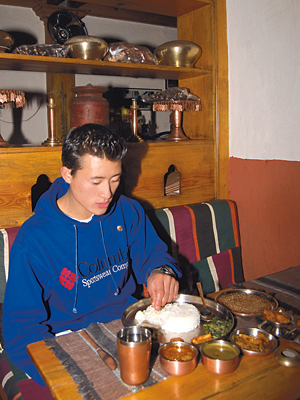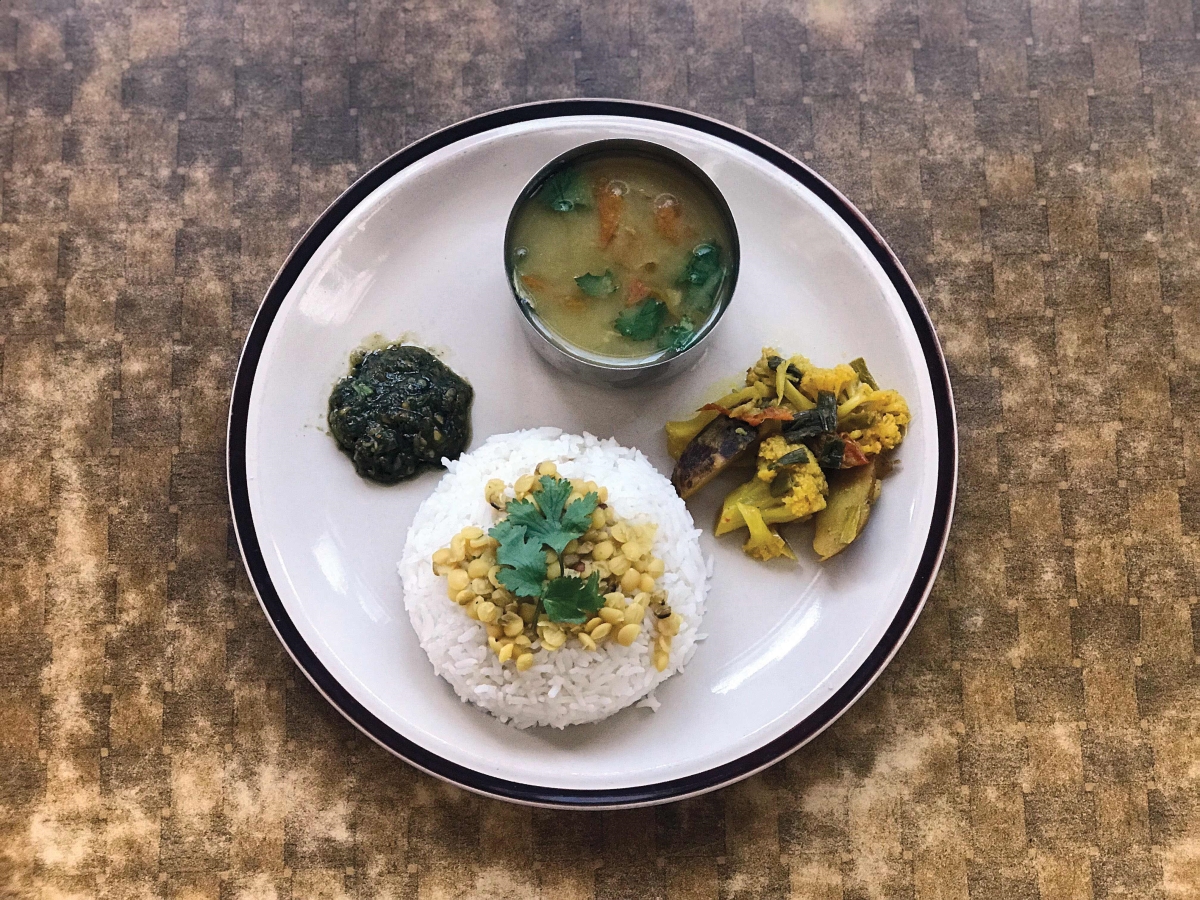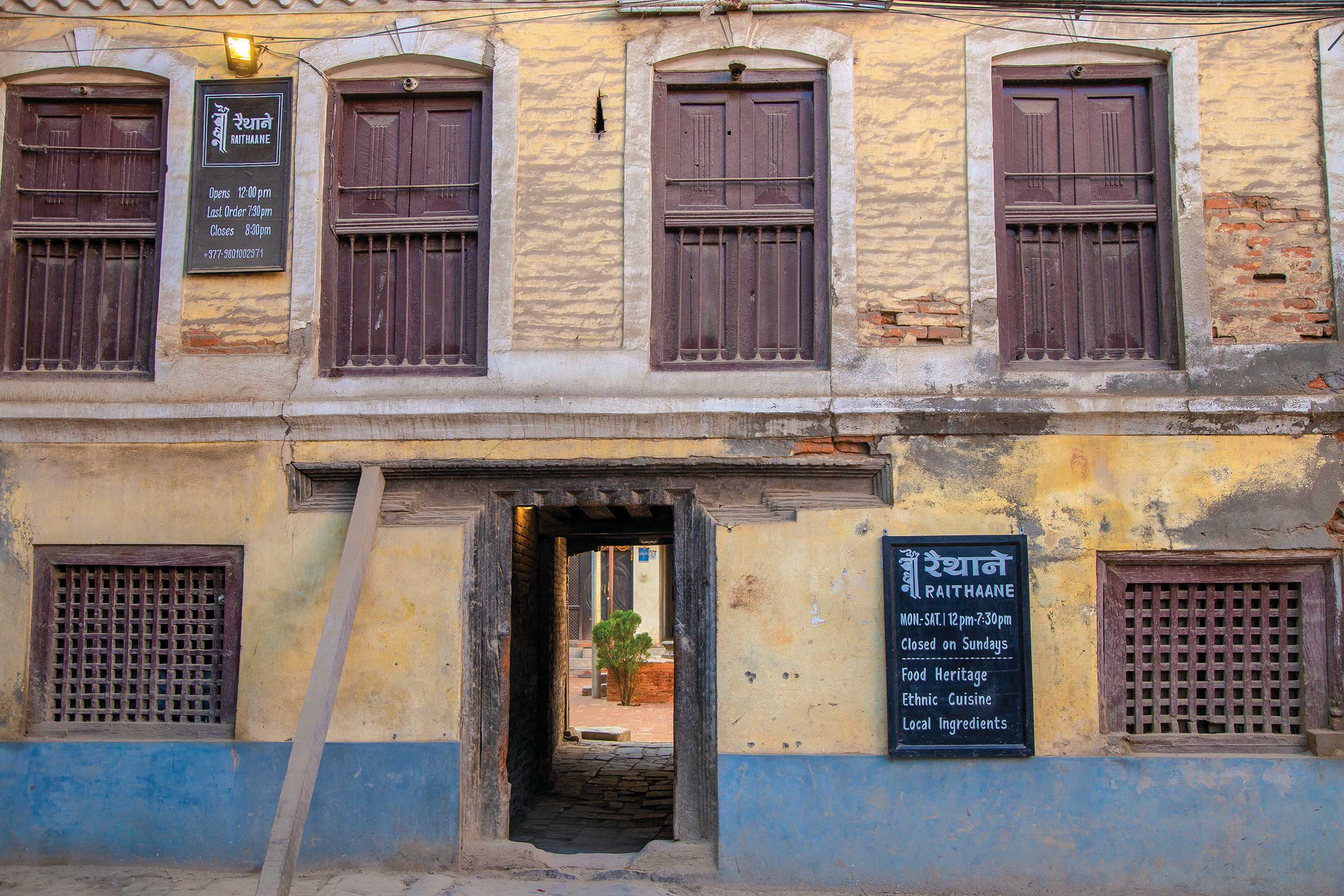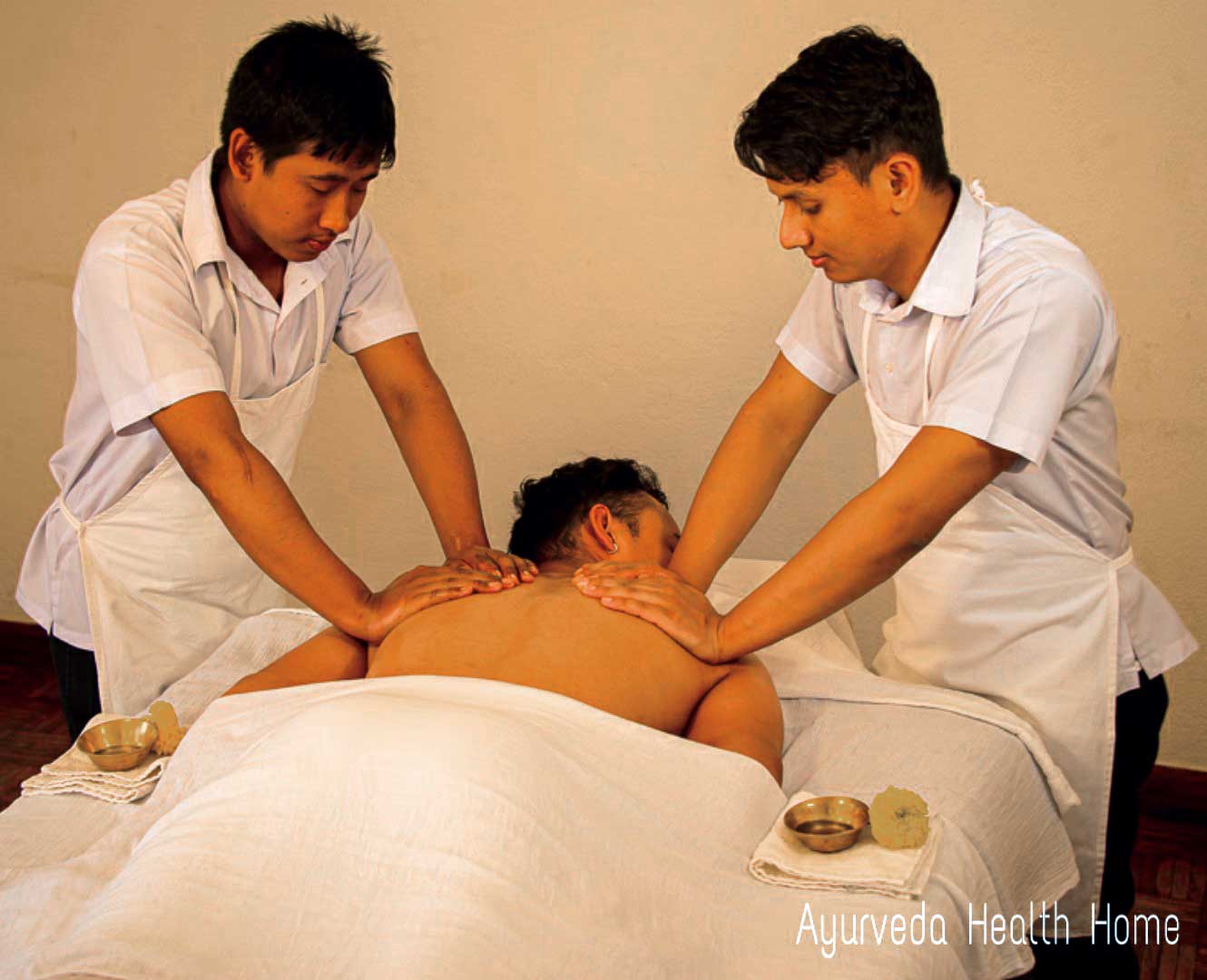The Trials and Triumphs of the World’s Youngest Everest Summiteer
Temba entered Tukche with a friend, looking a bit nervous. Having never seen him before I was expecting somebody much bigger and bolder. Little did I know that a humble yet boyish “namaste” from him was my first step to discovering how daring, bold, ambitious, yet simple this young Sherpa really is. After the usual greetings and introductions I asked him the obvious question. “How did it feel to master Everest?” A big smile and sparkling eyes said it all. “How does it feel to win the World Cup finals? I felt that way,” says Temba, still a bit uneasy. His first attempt on Everest in 2000 was a big disappointment, as his team decided to turn back from just 22 meters from the summit. “I thought I could touch the summit if I had just tried a little bit more,” says Temba with a tone of regret. As he recalls, they were forced to abandon the expedition so close to the top due to bad weather, insufficient equipment, and frostbite on his fingers. The group had to spend two nights at 8000m without using oxygen bottles, and bad weather further aggravated the situation. “I was extremely tired and I couldn’t think rationally. Everything I saw and felt at that time seems like a bad dream now. I’m just glad that I came back safely,” says Temba, who suffered from snow blindness as well as severe frostbite that cost him three fingers.
 The hot Thakali tea served in quaint vessels served to uplift the atmosphere, and as the waiters started to bring forth their best starters, our conversation became more interactive and interesting. In reply to my query about this teenager’s interest to climb Everest, Temba said, “I wanted to climb Everest for as long as I remember, and always dreamt of how I could do so.” Temba attributes his successful ascent at the young age of sixteen to the professional involvement of his family in this field. In his first expedition his father (as cook), uncle and elder brother accompanied him on his attempt to climb Everest. Undaunted by this initial failure, Temba set out to climb Mount Everest again in the spring of 2001, a year after his first attempt. No sooner had he disclosed his desire to do so than his mother insistently opposed it. But his determination to fulfill his desire overruled all sentiments and obstacles and he took a place in the International Tibet Expedition as his next opportunity to attempt to be the youngest boy on top of the world. The expedition this time was better organized with sponsorship from Thamserku Trekking, Pasang Lhamu Mountaineering Foundation (PLMF) and funds raised by his school, the Siddhartha Vanasthali Institute. Although he and the expedition did go through their share of problems, the second attempt seemed less difficult. After spending a grueling month in the rarified air, the group was ready for the grand finale. “The team set out for the summit at midnight on May 23. There was no stopping us this time,” says Temba with conviction. At last at 7am, Temba, one Spanish climber and another Sherpa finally made it to the top of the world, setting a new world record. “The first thing that I did was place my school flag, the Nepali national flag, and a photograph of Pasang Lhamu (the first Nepali women to climb Mt Everest) on the highest point on earth,” says Temba with great pride. After spending barely 10 minutes on the summit he made it back to Base Camp safely. “It was happy news for the whole family. But even though my mother was equally happy with my success she pleaded me not to climb again,” says Temba. Does he plan to climb Everest again? “I haven’t thought about it, but there are possibilities,” says Temba who is now totally focused on pursuing his higher studies.
The hot Thakali tea served in quaint vessels served to uplift the atmosphere, and as the waiters started to bring forth their best starters, our conversation became more interactive and interesting. In reply to my query about this teenager’s interest to climb Everest, Temba said, “I wanted to climb Everest for as long as I remember, and always dreamt of how I could do so.” Temba attributes his successful ascent at the young age of sixteen to the professional involvement of his family in this field. In his first expedition his father (as cook), uncle and elder brother accompanied him on his attempt to climb Everest. Undaunted by this initial failure, Temba set out to climb Mount Everest again in the spring of 2001, a year after his first attempt. No sooner had he disclosed his desire to do so than his mother insistently opposed it. But his determination to fulfill his desire overruled all sentiments and obstacles and he took a place in the International Tibet Expedition as his next opportunity to attempt to be the youngest boy on top of the world. The expedition this time was better organized with sponsorship from Thamserku Trekking, Pasang Lhamu Mountaineering Foundation (PLMF) and funds raised by his school, the Siddhartha Vanasthali Institute. Although he and the expedition did go through their share of problems, the second attempt seemed less difficult. After spending a grueling month in the rarified air, the group was ready for the grand finale. “The team set out for the summit at midnight on May 23. There was no stopping us this time,” says Temba with conviction. At last at 7am, Temba, one Spanish climber and another Sherpa finally made it to the top of the world, setting a new world record. “The first thing that I did was place my school flag, the Nepali national flag, and a photograph of Pasang Lhamu (the first Nepali women to climb Mt Everest) on the highest point on earth,” says Temba with great pride. After spending barely 10 minutes on the summit he made it back to Base Camp safely. “It was happy news for the whole family. But even though my mother was equally happy with my success she pleaded me not to climb again,” says Temba. Does he plan to climb Everest again? “I haven’t thought about it, but there are possibilities,” says Temba who is now totally focused on pursuing his higher studies.
As he finished this thought, initiation into an afternoon of fine dining began with the arrival of some delicious chicken and vegetable momos, sukuti (dried meat) and sandheko aloo. Like the food before us our conversation spiced up, as we talked further about his life after Mount Everest.
A hero was born overnight for Nepal and for the world. Being the youngest person to climb Mount Everest, Temba carved his place in mountaineering history - and in the Guinness book of World Records. He was invited to visit Japan and Algeria after his successful ascent of Everest. He was also felicitated in many programs organized in Nepal. Today the staff of Siddhartha Vanasthali Institute pride themselves in having Temba, a national hero and a promising student at their Institute, and have supported and encouraged him tremendously, including funding an apartment for him to stay in Kathmandu to complete his education. His Majesty’s Government has helped by awarding Temba Rs. 60,000 for a five-year scholarship.
Temba loves to travel around the globe and meet people. At present he is also involved with the LIONS club Youth Wing Project called the LEO Club of Kathmandu, where he trains and encourages young aspiring climbers like himself. “We try to offer character and leadership development with opportunities for experience,” says Temba, a natural leader. As to what he wants to say to young and enthusiastic climbers, “You have to take great care and be fully prepared in advance. Above all strong will power, conviction and determination to fulfill your dreams can take you even beyond Everest.”
We started with our main course, which consisted of the typical Thakali Thali. This combination of fried dal, unrefined (brown) rice, roti, mixed vegetables and goat meat was a divine union for the taste buds. Thinking of unions, and aware that Temba comes from a place where people get married relatively early in life, I asked him whether he had any plans for matrimony in the near future. Temba smiled shyly (like most of the teenagers’ do when talking of marriage with their elders) and said he has not decided yet when or whom to marry. As of now his ultimate goal is to complete his graduation, after which he has a strong conviction that he will be working in the field of tourism in Nepal.
For dessert, the buttery kheer (rice pudding) was a perfect ending to a fantastic dining experience. Temba’s frankness and innocence reflected his genuineness as a person and as a world hero. Anyone who meets this young man, as I did, would still want to believe in his or her forgotten dreams. A boy with courage, a man with vision, and a leader with the confidence to excel- that’s Temba Tsheri Sherpa.
Dine in Thakali Style: Tukche Thakali Kitchen
Amongst the bright and flashy signboards in Durbar Marg, an inconspicuous board marks the entrance to Tukche Thakali Kitchen (between the Delicatessen and the Bentley showroom). Started in 1997 by the Sherchan family, it takes its name from Tukche village, home to the Thakali people who have a reputation for great hospitality and cooking.
The entrance is rather murky and as I found myself groping up the poorly lit stairways I tried to adjust to the light. Suddenly I entered a different world untouched by the hurly burly pace of city life. The traditional décor, lighting and seating style of the place with the extensive use of wood reflects the Thakali way of life. Consistent with its earthy tones, the ambience of the place is highlighted by the soothing background folk music.
I was very early for the interview with Temba Sherpa, to try two meals in one day. As soon as I settled myself in a comfortable corner, a menu on Nepali paper was presented. The waiters were pleasant, dressed in typical Dahura Suruwal. The choices were many. Although the unfamiliar Thakali items sounded tempting, my companion and I opted for the set meals, which were both convenient and filling. But I just couldn’t resist exploring the menu further, so I ordered Phuralajiaw Churpi (fried dried cheese) with powdered sugar and Aloo Sadheko for starters. But to really appreciate the food at Tukche one has to be bold enough to try something new. And since ingredients like Prumuchhop (Thakali chilly) and the mountain goat and chicken meat used in making Thakali food served in the restaurant come all the way from Tukche village, the dishes here have an interesting added flavor.
While I waited for Temba to arrive I couldn’t resist mulling over the bar menu. Besides the usual bar drinks, interesting concoctions caught my attention: Tukche brandy made from apples or apricots and Jhwoikhatte, a clear spirit finished by heating butter in a pan and frying cooked dried rice. The Thakali rice wine or Phee is also a popular drink that goes well with the kind of food served here.
Tukche Thakali Kitchen has also opened an outlet in Baneshwor called Thakali Tukche Café (besides the Nanglo Bakery Café) For inquiries and reservations, call: 4225890 or e-mail: tukche@tkitchen.wlink.com.np
Ani Choying Drolma: Life Post Covid
Covid changed the lives of most people, some for the better and some for the worse. Ani Choying Dromla took...










